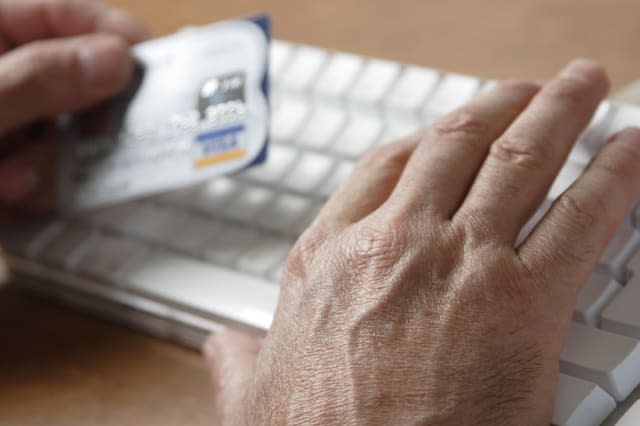Do you really need a separate bank account to protect from online shopping fraud?

As many as 1,000 people a day are falling victim to online shopping fraud, the City of London Police have warned. It has led to suggestions that we may need a separate bank account for online shopping on order to protect ourselves.
At a recent hacking demonstration laid on for bankers, James Phipson, special inspector and director of the Economic Crime Directorate for City of London Police, said that almost a fifth of all fraud in the UK relates to online shopping.
"Online shopping fraud is the biggest threat to the UK. Victims often don't realise they've fallen foul of a scam until their goods don't arrive a month later," he tells This Is Money.
"By then, it is too late to do anything. Your money will have been moved from bank account to bank account and disappeared halfway round the world by then."
According to the police, the riskiest items to buy online are mobile phones; others include footwear, clothing, watches, gaming consoles, computers, furniture and home electrical products.
"When it comes to online shopping if something looks like it is a great bargain it's probably poor quality, fake or doesn't even exist," says police national coordinator for economic crime, commander Chris Greany.
And while it's bad enough when you don't receive the goods you've paid for, there is often worse to come. Buyers are often tricked into sending confidential personal or financial information that allows fraudsters to steal their identity and clear out their bank accounts.
%VIRTUAL-ArticleSidebar-scams-guide%
So how can you keep yourself safe?
You can set up a separate bank account for online shopping, and only put money into it when you intend to spend it online. That way, if your details are compromised, your exposure is limited.
However, this won't stop you falling foul of bogus sellers. To protect yourself here, the police advise, you should study the feedback given by other buyers and avoid any vendors that don't have a good rating. However, even if they do, you can't necessarily take it on trust. Fraudsters often open an account and carry out a number of deals to build up positive feedback: it's worth looking at this to check whether it's from buyers or sellers, and how relevant it is to purchases like yours.
Avoid listings with poor quality photos or a lack of information. And while you obviously want the best price, avoid anything that sounds too good to be true - because it probably is.
Don't be tempted to go off-site: scammers will often approach an unsuccessful eBay bidder, offering to sell the same item at a low cost. Similarly, use the site's own messaging service and payment system, such as PayPal. If you allow yourself to be persuaded to pay by, say, direct transfer, you'll have no protection if things go wrong.
And keep an eagle eye out for phishing emails, which often follow a successful sting. These may appear to be coming from the site itself, generally asking you to update your account details or re-enter them because your account has been suspended. Do so, and you're wide-open to fraud.
"If you feel like something is suspicious, it probably is, so it's always better to be safe than sorry," says Tony Neate, CEO of the Get Safe Online campaign.





